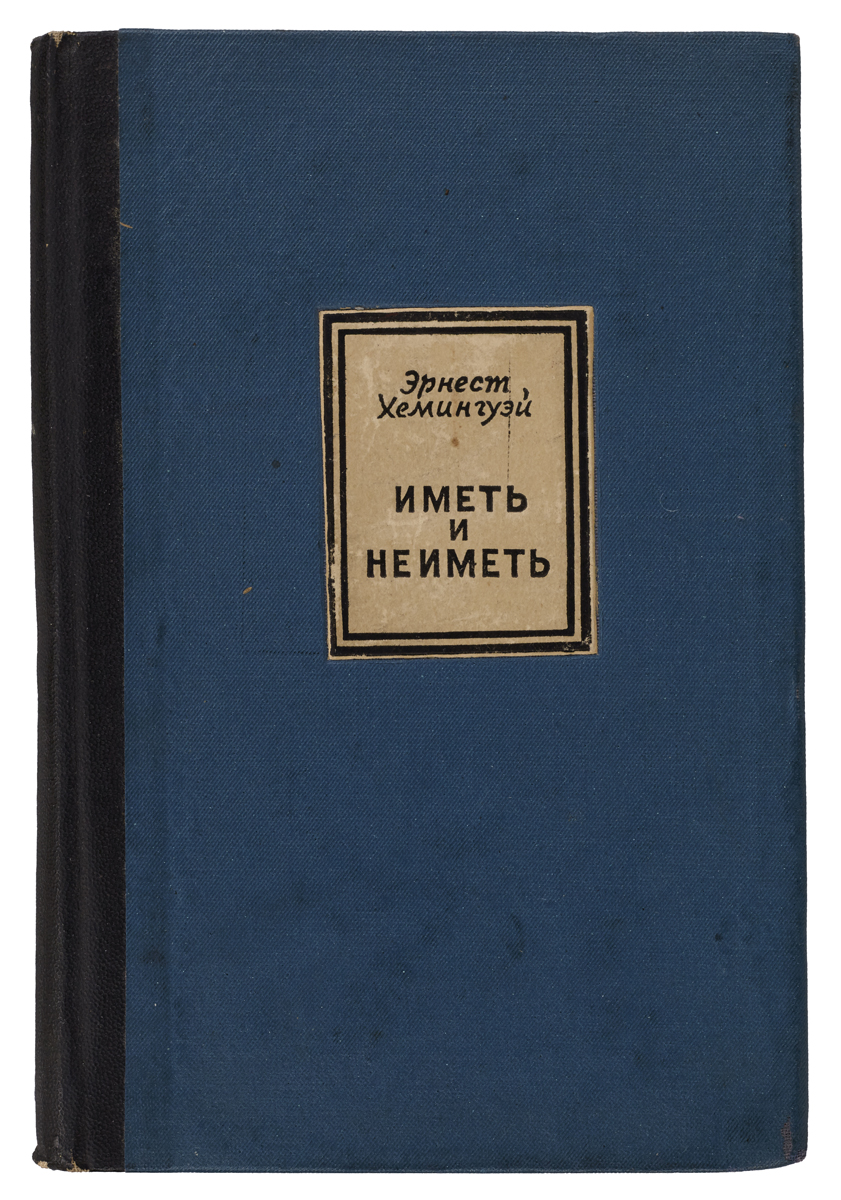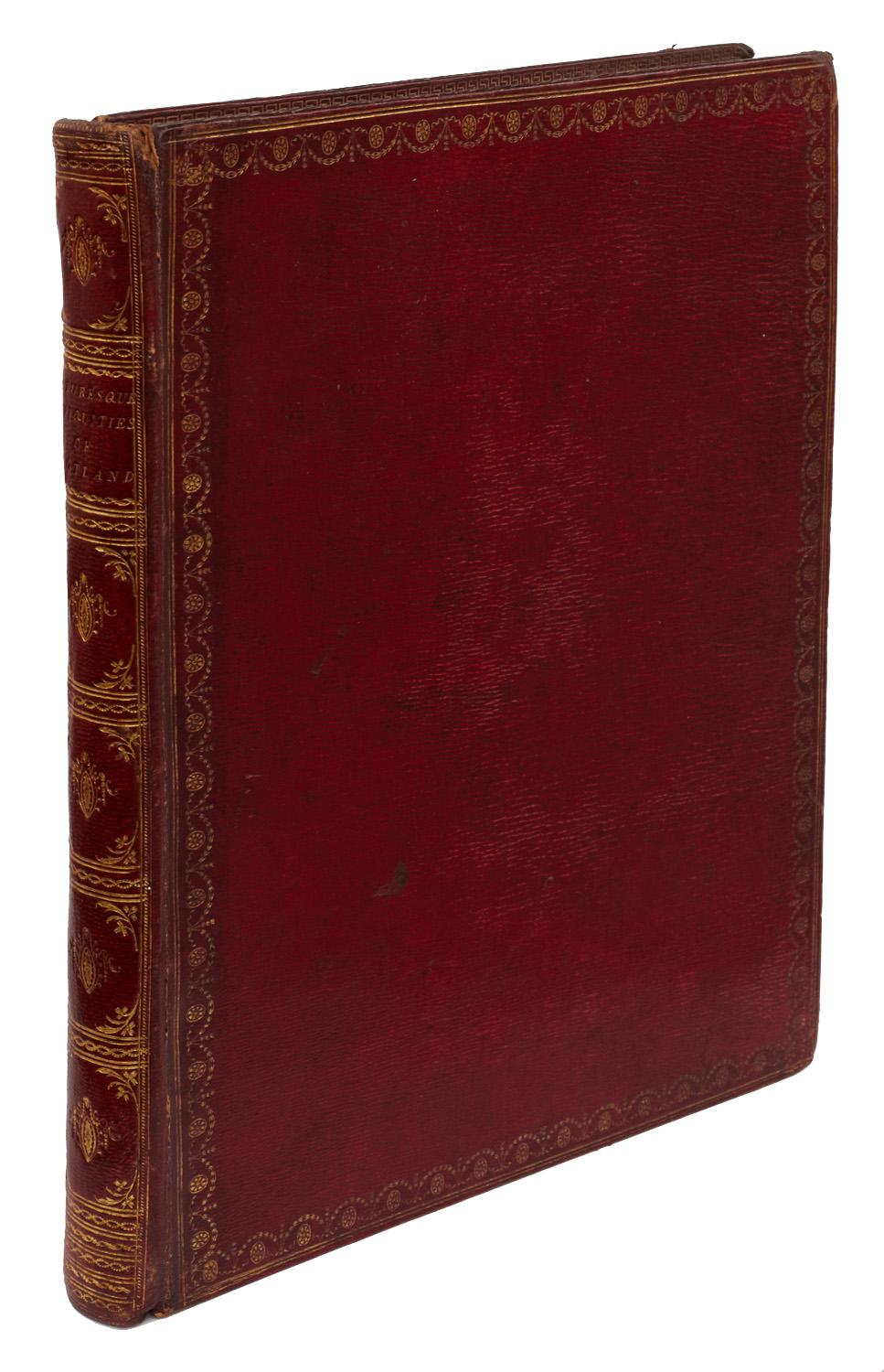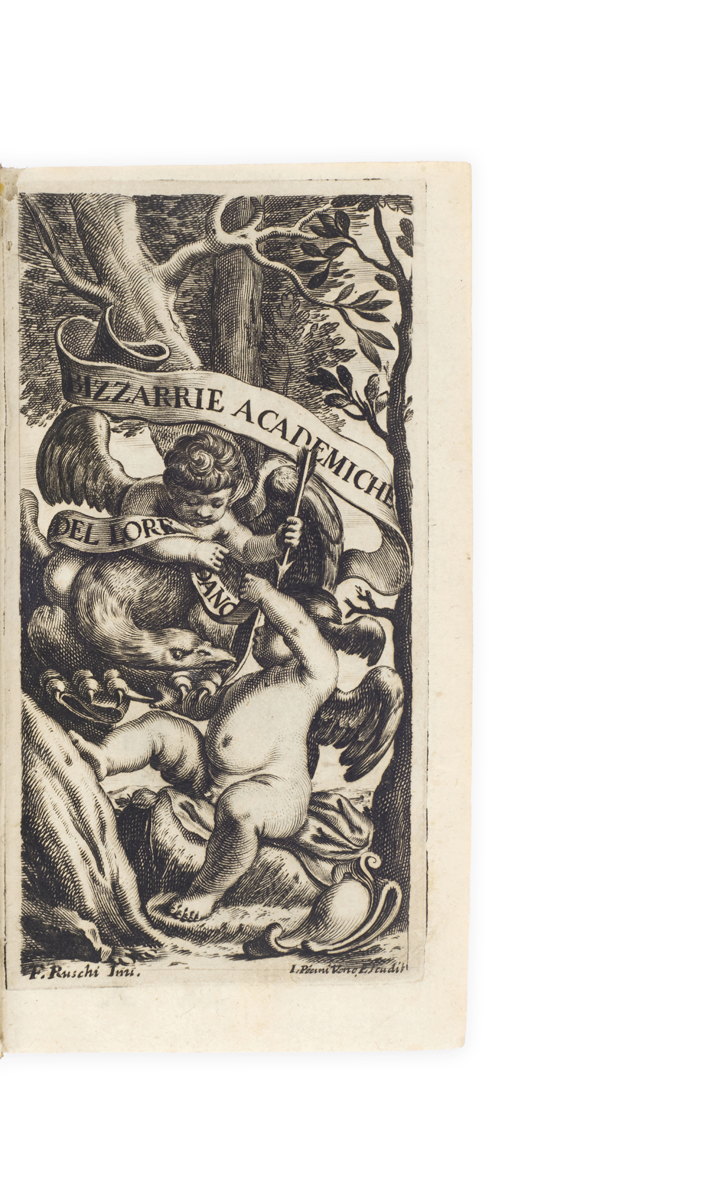
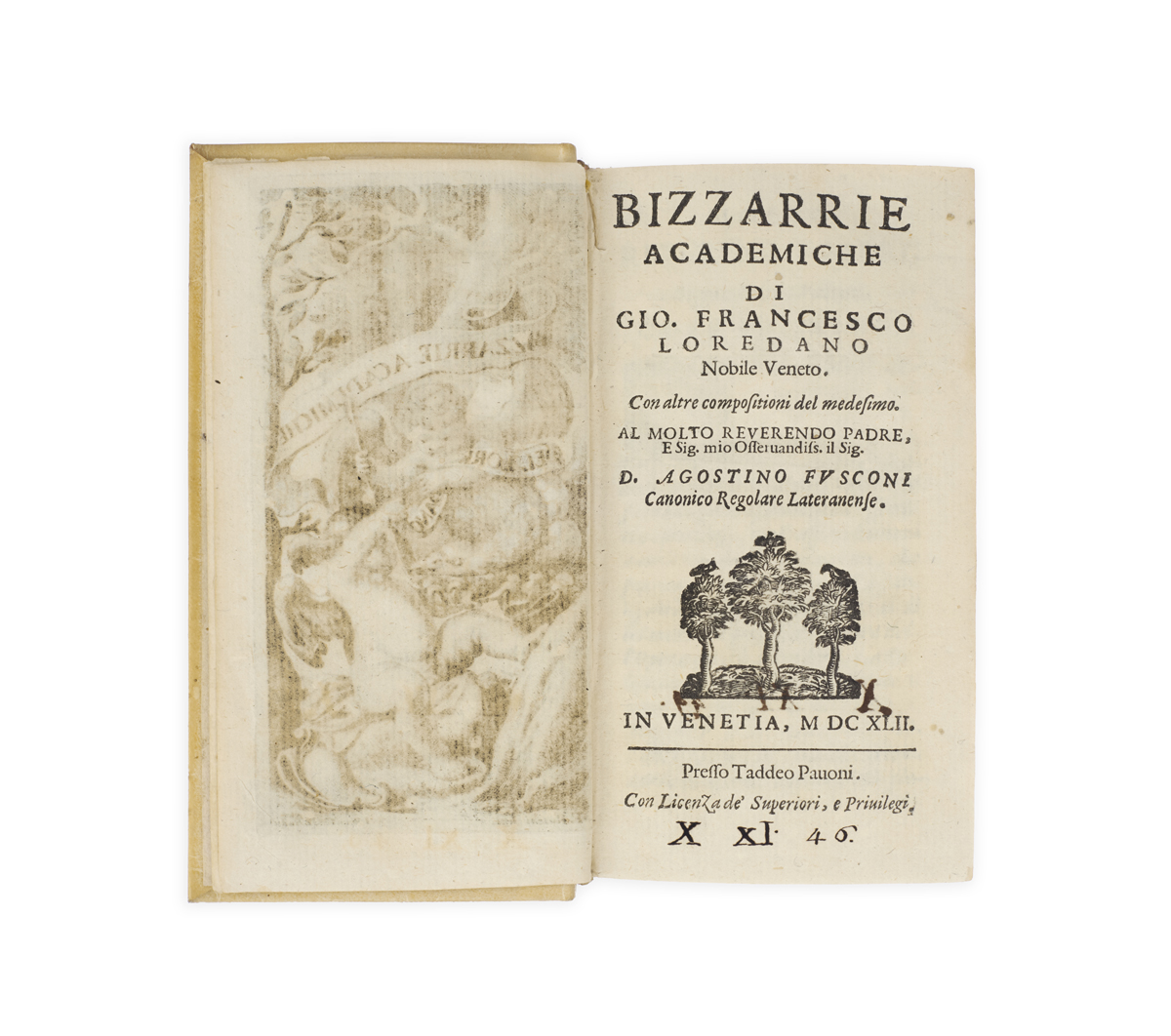
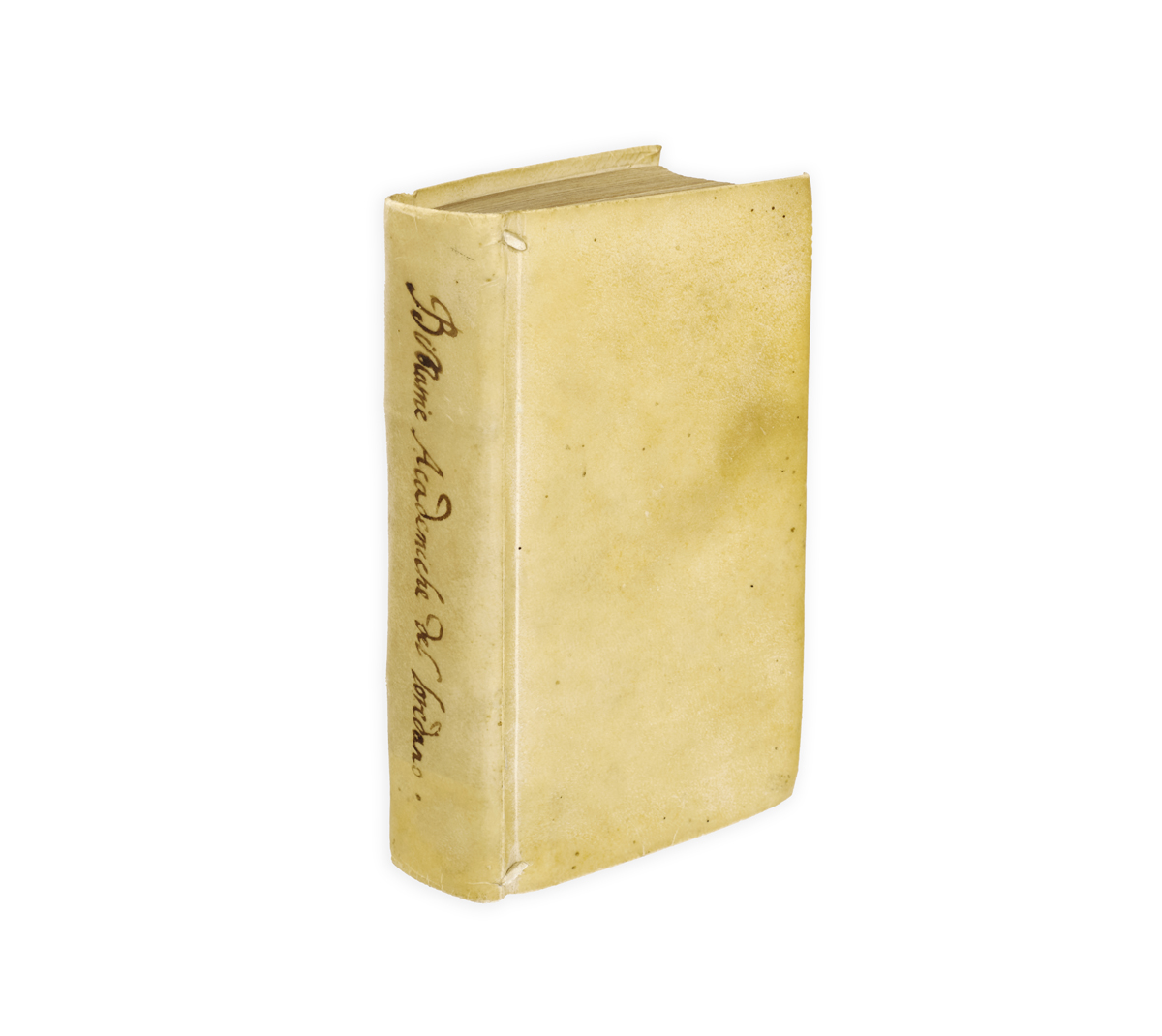
SEX IN VENICE
LOREDAN, Giovanni Francesco.
Bizzarrie academiche di Gio. Francesco Loredano Nobile Veneto, con altre composizioni del medesimo …
Venice, Taddeo Pavoni, 1642.
12mo, pp. [xlviii], 432; copper-engraved title-page printed to a1 by Giacomo Pecini after F. Ruschi depicting two putti and an eagle, woodcut device to title, woodcut initials; very occasional slight foxing, otherwise a pristine copy; in contemporary Italian vellum, spine lettered in ink, spine lined with woodcut-printed waste; contemporary ink shelfmarks to recto and verso of title.

Added to your basket:
Bizzarrie academiche di Gio. Francesco Loredano Nobile Veneto, con altre composizioni del medesimo …
Expanded fourth edition, very rare, of this series of salacious academic discourses by Venetian senator Giovanni Francesco Loredan (1606/7–1661), founder of the Accademia degli Incogniti and a central figure in seventeenth-century Venetian publishing.
Loredan founded the Accademia degli Incogniti (‘Academy of the Unknowns’) in 1630. Its members’ publications were often printed anonymously or under fictitious imprints and were frequently characterised by an unusually libertine view of sexuality, albeit one defined by gendered double standards: ‘In the literary world created and sustained by the Incogniti, female virtue is relative, female self-expression through writing, singing, or fashion is suspect, bodies are unstable, and the lure of the erotic is ever present’ (Heller, p. 53).
The Bizzarrie reveal the paradoxical nature of Loredan’s perception of female sexuality; women are simultaneously revered for their beauty and feared for their sexual and political power, and the resulting danger they ostensibly pose to men. Designed to be heard by his fellow Incogniti, Loredan’s discourses are ‘filled with satire and double meanings, encoded for a knowing audience in which … the serious and the comic are often difficult to differentiate. Although the tone is playful and the speaker claims to be open to opposing viewpoints, what emerges is a negative view of women masked by a pretense of chivalry that is at once exaggerated and patronizing’ (ibid.). Among various subjects, Loredan addresses whether blushing is a sign of virtue (viewed as an imperfection, and women, perceived as naturally imperfect and prone to error, are accused of blushing more frequently), if it is possible to kiss without sensuality, the ‘Florentine kiss’, in which one grasps one’s lover by the ears, and numerous examples of so-called feminine indecency.
First published in 1634, the Bizzarrie were frequently reprinted in the following decades. The present edition is the first to contain Loredan’s ‘Morte del Volestain’, on Albrecht von Wallenstein’s involvement in the Thirty Years’ War (pp. 345-94), and a biography of the baroque poet Giambattista Marino (pp. 395-432).
OCLC and Library Hub together find three copies in the US (Georgia, Las Vegas, and Maryland) and only one in the UK (Jesus College Oxford).
Not in Brunet or BM STC Italian. See Heller, Emblems of Eloquence (2003).
